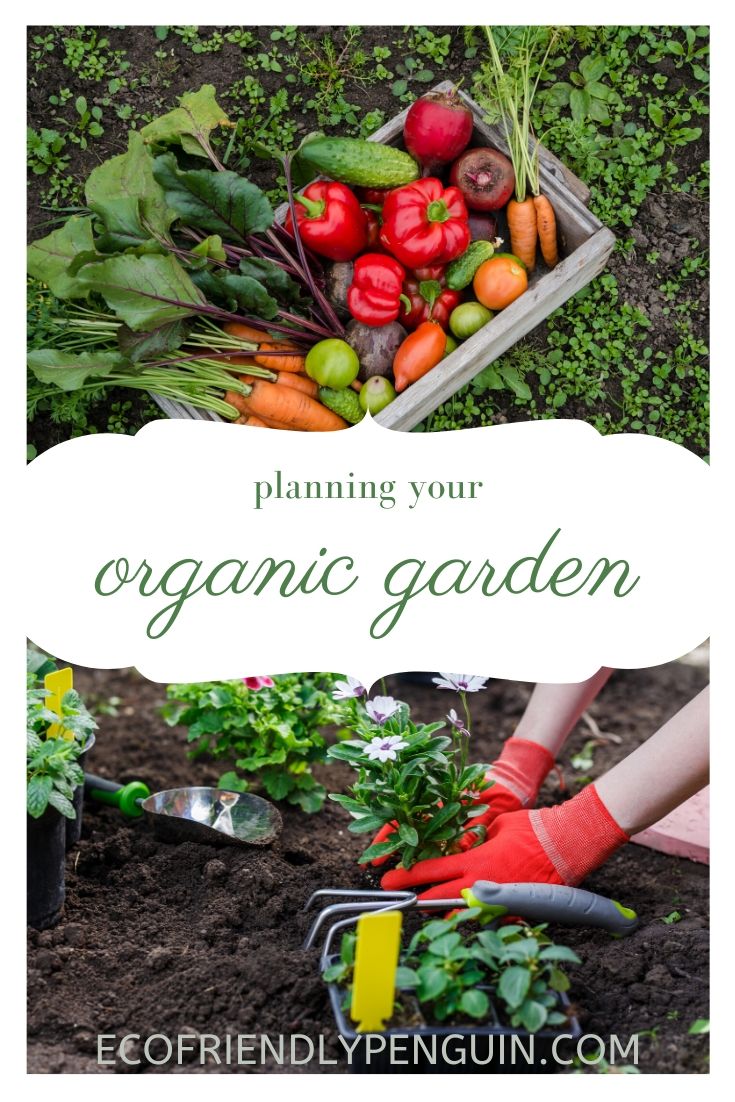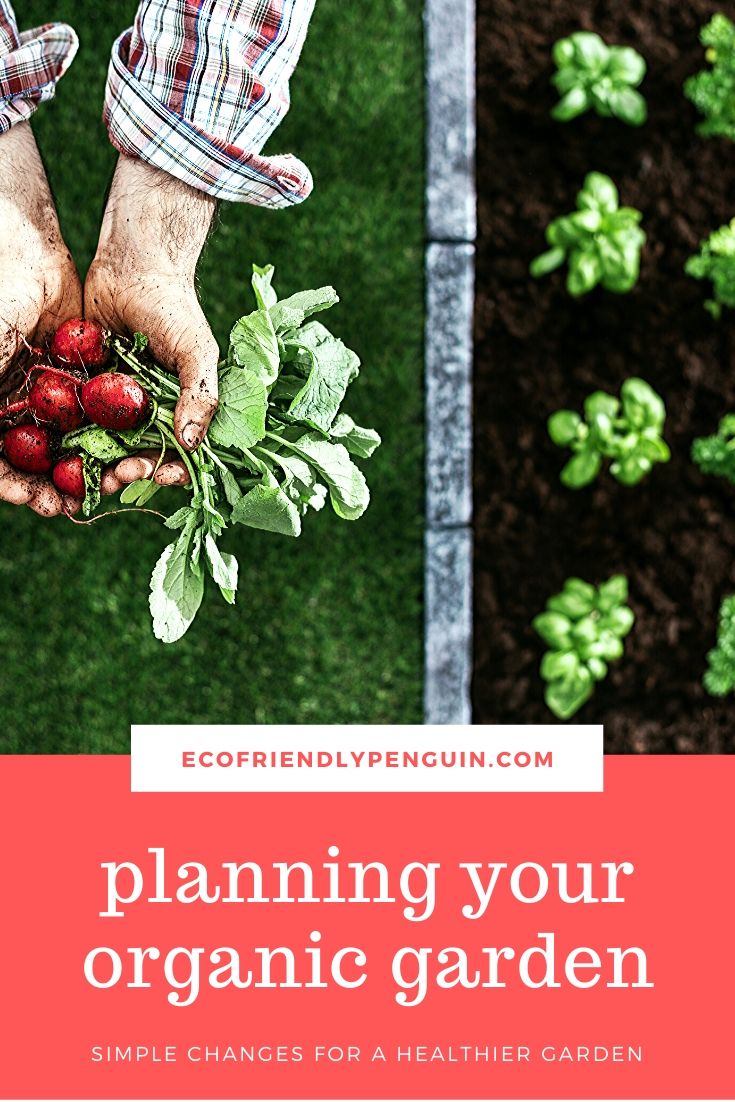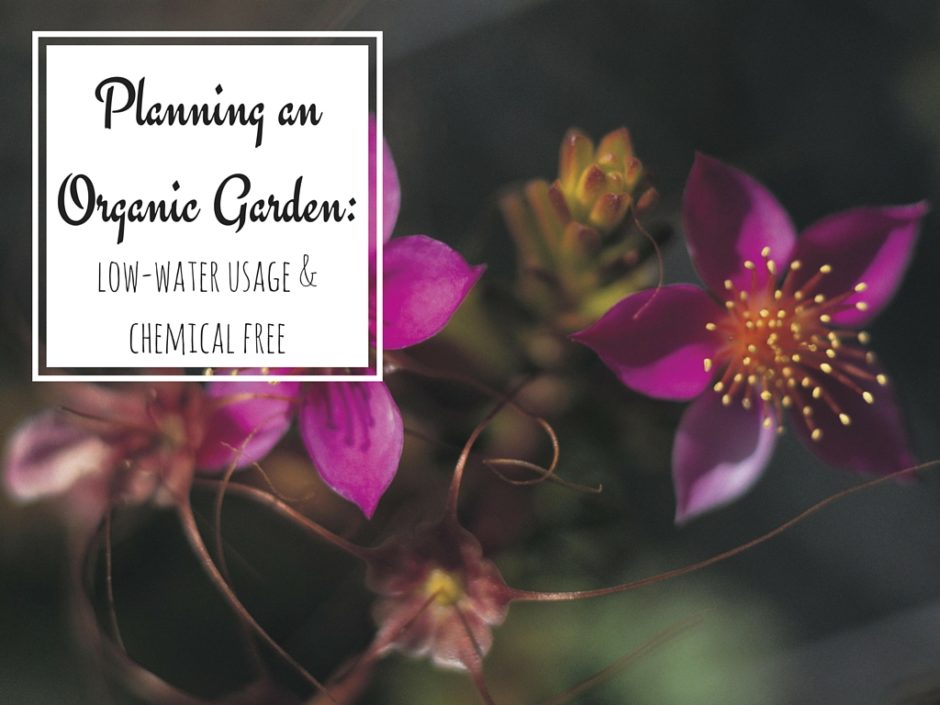Thousands of chemicals are sprayed into our environment every year and gallons upon gallons of water is wasted by growing plants. Most of this waste is done by huge agricultural companies, but some of it is also done in our home grown gardens. We can make a huge difference by changing how we garden and by making some simple changes. There are lots of agricultural producers who have managed to make changes and you can use the same tactics in your organic garden and help our planet.
*This post contains affiliate links.*
Planning an Organic Garden
The first step towards an organic garden is starting your own compost pile. You can do this pretty easily by starting right in your kitchen with a kitchen compost bin. You can keep this under your kitchen sink and throw your food leftovers in it, instead of throwing it in the garbage. This is a great way to add natural fertilizer to your garden.
Another important step towards planning an organic garden is picking your seeds. You can make your garden grow better if you choose companion plants, which we will talk about more later.
RELATED POST: Our DIY Tiny House Journey
Chemicals Used in Gardens
There are a bunch of products on the market today that promise to make your plants grow bigger, stronger, and faster… And a lot of them deliver! It’s important to take a step back and think about what is actually in these products that we are pouring into our soil, on our plants, and eventually, we end up consuming the products when we harvest our gardens.
Studies have shown that chemicals in fertilizers and plant food can cause cancer and other health related issues. Instead of using store bought items with toxic chemicals, consider starting a compost bin to feed your plants. It’s better for the environment, and will help you cut down on food wastage by using food leftovers instead of throwing them out.
Herbicides, otherwise known as weed killers, is another item we should try to avoid. Glyphosate, also known as Roundup, has been linked to cancer. It makes sense that using toxic chemicals on a weed or pest to kill it would also harm humans, especially children, but also pets.
RELATED POST: Reduce Your Carbon Footprint Right Now!

Pick the Right Plants
Make sure that the plants you choose are appropriate for the area you live in. You can’t control conditions like rain, humidity, and temperature in your garden. By choosing the right kind of plants you may be able to avoid using fertilizers and save on water too. Make sure you do some research about native plants in your surrounding areas and plant them in your own garden. Wildflowers are an excellent choice, you can pretty much leave them alone and they will thrive.
Check to see what kind of sunlight your plants need. Some plants need partial sun while other need full. Planting things where they can best flourish is the best was to avoid having to use any chemicals to help them grow.
RELATED POST: What is Homeopathy?
Pick Plants that are Natural Pest Repellents
By choosing plants that repel pests, you won’t need to rely on poisons to get rid of bugs. Many plants produce chemicals that repel pests naturally. Putting them in your garden will keep it safe and you won’t need any harmful chemicals. You can even use some of these plants to make products that keep pests away from you too. If you don’t want to plant natural repellents in your garden you can use herbs like hot pepper, vanilla, and lavender to help repel pests.
You can also plant certain items around your veggie garden. Marigolds are an excellent choice for this since it helps repel pests. I plant a few on the outer area of my organic garden to help keep pests away. Peppermint is also a good option for this as well, and you can enjoy some fresh peppermint!
RELATED POST: Growing Broccoli Indoors
Plant Complimentary Items
By planting certain items next to each other, they can help each other grow. These are called companion plants. Certain plants, like cucumbers and radishes, can help each other thrive.
Here are a few other examples:
- Marigolds and Cabbages
- Cucumbers and Sunflowers
- Onions and Carrots
- Lettuce and Carrots
- Corn and Beans
When planning your vegetable garden, plant these items close together and your veggies will thrive and grow better!

Make Sure you Pull out the Weeds
Avoid using chemicals to kill weeds and just pluck ’em out. It’s still very effective and you won’t be spraying anything toxic into the environment. If you take a little time each day to pull weeds from your organic garden it doesn’t take that long.
You can also buy kitchen compost bin, that make the job easier. You also can avoid having to bend over for each weed, your back will thank you!
Rotate Your Crops
Rotating your crops is an excellent way to naturally fertilize plants. Plants use different nutrients and put different nutrients back into the soil. By rotating your crops you replace nutrients the other plants have used up and you’ll end up needing less fertilizer. You can use this tip on a smaller scale too; plant different plants each year or just rotate where you are putting specific plants.
Saving Water in Your Organic Garden
If you follow these tips, you will already be saving on water. If you want to take it a step further, consider buying or making a rain barrel to collect rain water. You can save a lot of water by using rain water you have collected instead.
RELATED POST: Huge List of DIY Reduce Your Carbon Footprint
Putting Your Plans to Action
If you are used to going to the store and buying fertilizers, herbicides, and pesticides, it might take some thoughtful planning to reverse those habits. If you can implement some of the plans and tips stated in this article, you will be well on your way to healthier, more eco-friendly organic garden. This is not only better for you and your family, but also for the environment.
Now that you have implemented these changes you are growing a more efficient, low-water, and chemical free, organic garden. Now you need to spread the word! One garden definitely makes a difference, but the more gardens implementing these tips, the better! Tell your friends and family about the changes you are making, better yet, show them the fruits of your labor. (pun intended.) When your organic garden is growing big and strong, you can tell them how you did it!
RELATED POST: Master List of Sustainable Products for your Home

